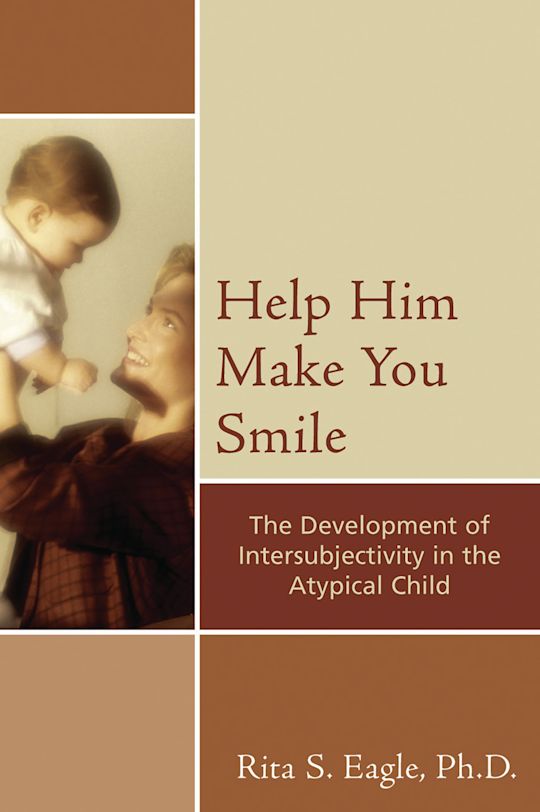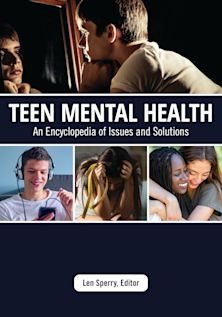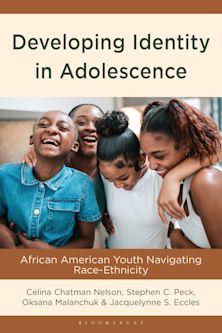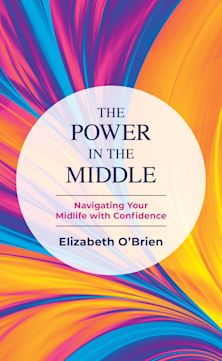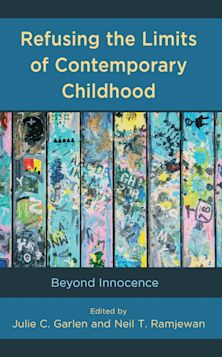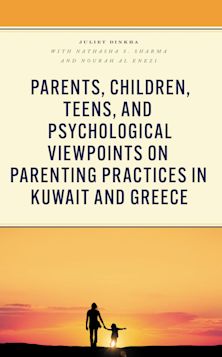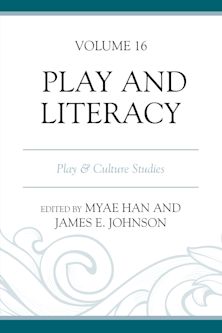- Home
- ACADEMIC
- Psychology
- Developmental Psychology
- Help Him Make You Smile
Help Him Make You Smile
The Development of Intersubjectivity in the Atypical Child
Help Him Make You Smile
The Development of Intersubjectivity in the Atypical Child
You must sign in to add this item to your wishlist. Please sign in or create an account
Description
Intersubjectivity refers to the motivation and capacity to connect and share one's own inner world with that of another person. This book addresses the questions: how does this precious human communication develop in infancy, and what can or should be done when it does not develop? The author presents a unique chronicle describing the day-by- day emergence of intersubjectivity in her infant son, born with neurodevelopmental disabilities. These observations are analyzed in the context of a critical review of theory and research about intersubjectivity in normal children and in children with atypical development. From both sources emerges a model for how intersubjectivity develops in the parent-infant interaction, and guidelines for how to intervene when it does not. While acknowledging the inroads that have been made in understanding this unique human capacity, the author points to the questions that remain to be addressed in future research. The book ends with a rare opportunity to follow the trajectory of her son's capacity for intersubjectivity over a period of more than thirty years. It is addressed to theorists and researchers; clinicians who work with infants and children with developmental disorders and their families; and parents who want to understand their children's development.
Table of Contents
Chapter 2 Introduction 2: Intersubjectivity and the Atypical Child
Part 3 The Diary
Chapter 4 Diary Preface
Chapter 5 The Diary
Part 6 Theory and Practice
Chapter 7 Triple Your Pleasure
Chapter 8 Development of Self
Chapter 9 Intersubjectivity
Chapter 10 "Theory of Mind"
Chapter 11 Increments and Leaps
Chapter 12 Interventions: Fostering the Emergence of Self and Intersubjectivity in the Atypical Child
Chapter 13 Parent-Child Interaction with Children with Disorders Affecting Self and Self-Other Relationships
Chapter 14 Help Him Make You Smile
Part 15 Years Later
Chapter 16 Introduction to Part III: Same But Different
Chapter 17 Benjamin Today
Chapter 18 Benjaminisms
Product details
| Published | Mar 14 2007 |
|---|---|
| Format | Ebook (Epub & Mobi) |
| Edition | 1st |
| Extent | 336 |
| ISBN | 9781461628750 |
| Imprint | Jason Aronson, Inc. |
| Series | Psychological Issues |
| Publisher | Bloomsbury Publishing |
About the contributors
Reviews
-
The book is fascinating... It is an interesting and readable tale of the growth of a severely, perhaps autistic, neurologically impaired child... The book has value for the professional and for parent?caretakers of these children in its suggestions for interventions and for providing a view of a possible, optimistic, although limited outcome. Eagle's message is a positive one that is appropriately captured in the title of the book: Help Him Make You Smile.
PsycCRITIQUES
-
As a clinical psychologist who has worked with children with autism and has knowledge of the academic literature in relevant domains of psychology, as well as a parent drawing on experience of intimate involvement with Benjamin, Rita Eagle is well qualified to integrate detailed and personal descriptions of her son's development with reflections upon the sources of his difficulties, and more specifically of the handicaps to and progress in his development. From this perspective, she provides an accessiblecritical review of psychological theories of autism, as well as an informed evaluation of therapeutic interventions-with novel suggestions from her own experience. The book is an impressive achievement. The author is balanced and generous in her citations of the works of others, and at the same time has an individual voice and an engaging skepticism concerning theoretical accounts (including her own) that seek to encompass qualities of atypical development manifest in the behavior and experience of her own child and in others with developmental disorders. Her account is thoughtful, insightful, original, challenging and fresh; even when considering views somewhat at odds with her own, she attempts to share what is positive and enlightening. In summary,
Peter Hobson, Tavistock professor of Developmental Psychopathology, University of London
-
Dr. Eagle's account of her son Benjamin's development from birth to a happy, satisfied adulthood is one of the few books that combine the insights of a parent with the disciplined observations and conclusions of a qualified professional. Her story is not one of cure, miraculous or otherwise, but of another kind of triumph-of active love and persistence. It should help many families and enlighten many professionals.
Clara Claiborne Park, author, The Siege: A Family's Journey into the World of an Autistic Child and Exiting Nirvana: A Daughter's Life with Autism
-
Dr. Eagle has provided a masterful and unique contribution to our awareness and understanding of the emergence of self and intersubjectivity. The distillation of her observations and experiences as the mother of an atypical child, developmental psychologist and psychotherapist working with children and young adults with special needs over several decades, has resulted in a framework of understanding that provides greater clarity in a conceptually difficult area. Her insights have implications for early intervention in supporting atypically developing children as well as for the psychological support and prevention of emotional disturbances in adults with special needs. I will be recommending this book highly, as core reading, to my students and colleagues working with persons with developmental and learning disabilities across the life span.
Elspeth Bradley, Ph.D., M.D., associate professor, University of Toronto; psychiatrist-in-chief, Surrey Place Center, Toronto
-
This is an amazing account, both for its perceptiveness and honesty and for the descriptions of Benjamin's development and his mother's disclosure of her own experiences, feelings and reflections.
Inge Bretherton, Ph.D., professor emerita, Department of Human Development and Family Studies, University of Wisconsin-Madison
-
This is an extraordinary book, on so many levels. The story that it tells of a boy born with developmental disabilities is gripping, moving, at times amusing and at times painfully poignant. But most of all, the story of Benjamin's development is deeply inspiring. It is also the story of a parent who comes, not just to cherish her son, but to grow in so many ways as a result of having Benjamin in her life. Finally, it is the work of an exceptionally talented developmental psychologist who is constantly struggling with her field as she seeks to understand and help both her son and her science. One comes away with a deeper appreciation of the richness and the limitations of our current theories about the nature and importance of intersubjectivity. This is a book that is destined to become a classic, read and re-read by everyone who is interested in how a mind develops.
Stuart Shanker, D.Phil., president, Council of Early Child Development









